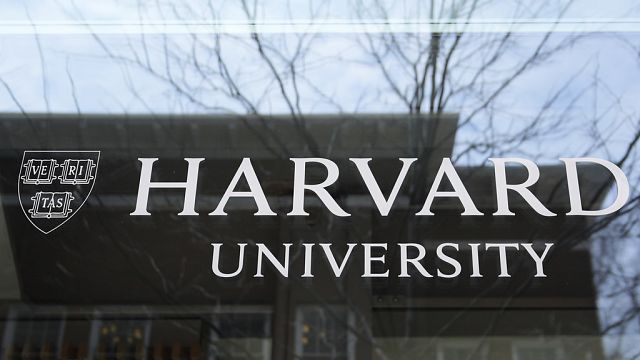Harvard University, an esteemed institution known for its academic prowess and diverse student body, found itself embroiled in a high-stakes battle with the Trump administration. In a shocking turn of events, the Department of Homeland Security dealt a severe blow to Harvard’s international student enrollment, sparking outrage and concern within the academic community and beyond.
Background Context
The clash between Harvard and the Trump administration escalated when the Department of Homeland Security revoked the university’s authority to enroll foreign students, citing serious allegations against the institution. The decision mandated that thousands of current international students at Harvard either transfer to other schools or face potential deportation, creating a wave of uncertainty and fear among the affected individuals.
Harvard, renowned for its global reach and diverse student population, hosts nearly 6,800 foreign students on its Cambridge campus, representing a significant portion of its overall student body. These students come from over 100 countries, enriching the academic environment and contributing to the university’s reputation as a melting pot of cultures and ideas.
Main Story Details
The Department of Homeland Security accused Harvard of fostering an unsafe campus environment by allegedly allowing “anti-American, pro-terrorist agitators” to target Jewish students on campus. Additionally, the administration claimed that Harvard had been collaborating with the Chinese Communist Party, further complicating the university’s position in the eyes of federal authorities.
Harvard’s Response
“This retaliatory action threatens serious harm to the Harvard community and our country, and undermines Harvard’s academic and research mission,” the university stated in response to the government’s decision, vehemently rejecting the allegations leveled against it.
The clash between Harvard and the Trump administration reflects a broader ideological struggle, with the federal government targeting elite educational institutions that it perceives as bastions of liberalism and antisemitism. This conflict has intensified over time, with Harvard becoming a focal point of the administration’s scrutiny and punitive measures.
Expert Analysis
The move to bar Harvard from enrolling foreign students has garnered criticism from education experts and advocacy groups. Ted Mitchell, president of the American Council on Education, condemned the action as an “illegal, small-minded” overreach, expressing concerns about the chilling effect it could have on international students seeking education in the United States.
Furthermore, free speech organizations like the Foundation for Individual Rights and Expression decried the government’s demands for extensive surveillance of foreign students, warning against the erosion of academic freedom and privacy rights on college campuses.
Broader Implications
The revocation of Harvard’s certification in the Student and Exchange Visitor Program signals a troubling trend of using administrative mechanisms to enforce immigration policies and crack down on higher education institutions. This move has raised questions about the government’s handling of international students and the impact on America’s reputation as a destination for global talent and academic exchange.
The allegations of antisemitism and ties to foreign entities also underscore broader concerns about national security and ideological influences on university campuses. The intersection of academic freedom, political pressures, and international relations has created a complex terrain where universities must navigate carefully to uphold their missions and values.
Future Outlook
As Harvard grapples with the fallout from the government’s actions, the university faces a critical juncture in safeguarding its international partnerships and preserving its academic integrity. The implications of this clash extend beyond Harvard’s campus, shaping the discourse on immigration policies, academic freedoms, and the role of universities in a politically charged environment.
Looking ahead, the outcome of this conflict will have far-reaching consequences for higher education institutions, international students, and the broader landscape of academic diplomacy. The Trump administration’s stance on Harvard sets a precedent that could reverberate across the educational landscape, impacting how universities engage with global issues and navigate geopolitical tensions.
Conclusion
The clash between the Trump administration and Harvard University over the enrollment of foreign students has unfolded as a dramatic saga of power struggles, ideological clashes, and the defense of academic principles. As the two entities continue to lock horns, the fate of thousands of international students hangs in the balance, caught in the crossfire of political agendas and institutional battles.
Ultimately, the showdown between Harvard and the government encapsulates the broader challenges facing higher education in an era marked by geopolitical tensions, ideological divides, and shifting paradigms of academic freedom. The outcome of this conflict will not only shape the future of Harvard but also resonate throughout the academic world, shaping the trajectory of international education and scholarly exchange.
—
Reference: Africa News – http://www.africanews.com/2025/05/23/trump-administration-bars-harvard-from-enrolling-foreign-students/
Originally reported by Africa News
Read more at: http://www.africanews.com/2025/05/23/trump-administration-bars-harvard-from-enrolling-foreign-students/









Leave feedback about this